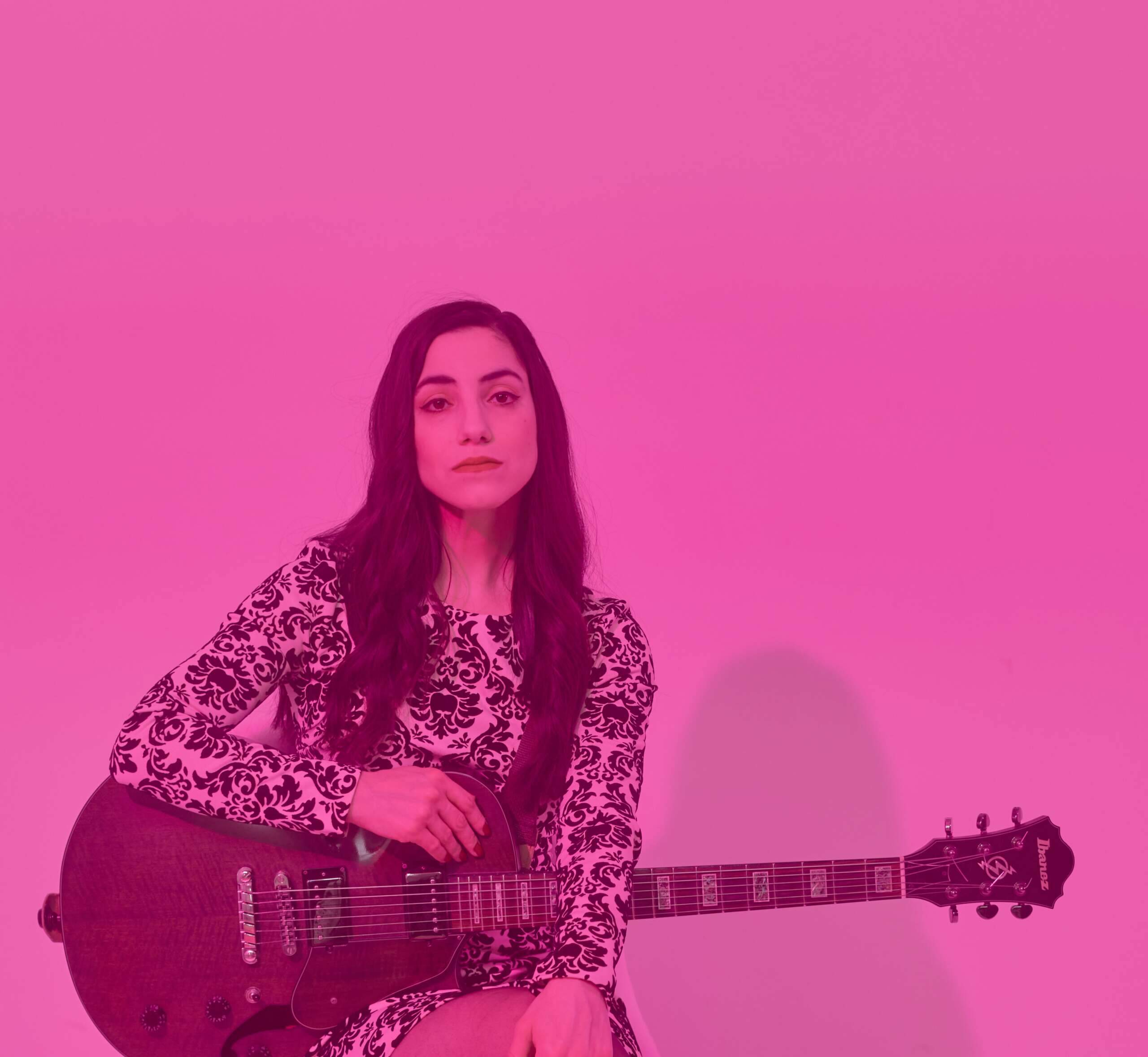Advertisement
Music Premiere
Listen: Savoir Faire transforms an Iranian protest chant into song

This is an exclusive song premiere, part of WBUR's effort to highlight New England musicians.
The idea for a song came to Sarah Fard in the spring of 2023 while she was preparing for Nowruz, the Persian New Year. It also happened to be International Women’s Day. “It just struck me, like, ‘Oh, this is an odd culmination of things,’” Fard recalled. “It’s International Women’s Day and it’s Persian New Year, but Persian women … aren’t feeling very celebrated right now.”
Fard, who performs music as Savoir Faire, had been riveted by the 2022 anti-government protests that swept Iran after the death of a young woman, Mahsa Amini, while in police custody. Amini was arrested for “improper hijab,” inspiring massive demonstrations against the country’s mandatory hijab law and Iran’s Islamic theocracy more broadly.
For Fard, the uprising was both personal and distant. The Iranian side of her family, her father’s, came to the United States after the 1979 Iranian Revolution. They never returned. “I am Iranian, but sometimes I feel like I’m not Iranian enough because I can’t speak the language,” said Fard, who grew up in New Hampshire and now lives in Boston.
Watching the movement unfold from afar, she wondered if her family would join the protests if they still lived in Iran. And so “Only Fools (Betarsee)” was born.
The song begins with a blown-out bass line that descends forebodingly, punctuated by the eerie strains of theremin. (Thereminist Via Mardot performs the famously spooky electronic instrument.) Fard, who styles herself a “noir-rock” musician, favors minor keys and unsettling moods — the ideal atmosphere for the song's verses, which are directed at the Iranian government: “Are you scared? Unaware?/ Can you look? Do you dare?” Fard sings in a throaty, quivering croon.
The lyrics are rooted in her belief that the powerful often act out of fear. “I know I'm oversimplifying it, but it feels to me, throughout history, that people try to control other people because they have fear of people that are different from them,” Fard said. “They have fear of relinquishing their power.”
The chorus is pulled directly from an Iranian protest chant: “Betarseed, betarseed, ma hame ba ham hasteem.” The slogan translates roughly to “Be afraid, be afraid, we are all together,” a message of defiance directed at the police. The chant, Fard learned, evolved from an earlier version that went “do not be afraid, we are all together” — an expression of solidarity among the protestors that morphed into something more bold.
Advertisement
Fard wanted that section of the song to feel hopeful, so she put it in a major key. The rigid, even tempo of the chant differs from Fard’s usual slinky style, and she was worried it would sound “hokey.” She went back and forth with producer Dave Brophy. “He’d send a version and I’d be like, ‘This sounds too cheerful,’” Fard said. “And he’d send another version and I’d be like, ‘This sounds like it could be on an ad.’”
They eventually landed on a tone of fierce determination. In its final form, the song seems to swell when it reaches the chorus. Fard's guitar interjects, snarling, and then her voice emerges, layered to mimic the sound of a crowd. The chant gathers strength, and if you listen closely, you can detect the portentous tolling of bells.
Something of a pragmatist, Fard harbors no illusions about the power of a song. She believes political and social movements, not music, will change the world. But she found herself moved by the plight of the protestors.
“What I kept seeing from social media from the people over there is, ‘Please, please just keep sharing this. Please don't let people forget this,’” Fard said. “It’s not the only time protests have happened. It’s not the only time people have been murdered over it. But it’s important to me that it stays in the media, and it stays in our minds.”

